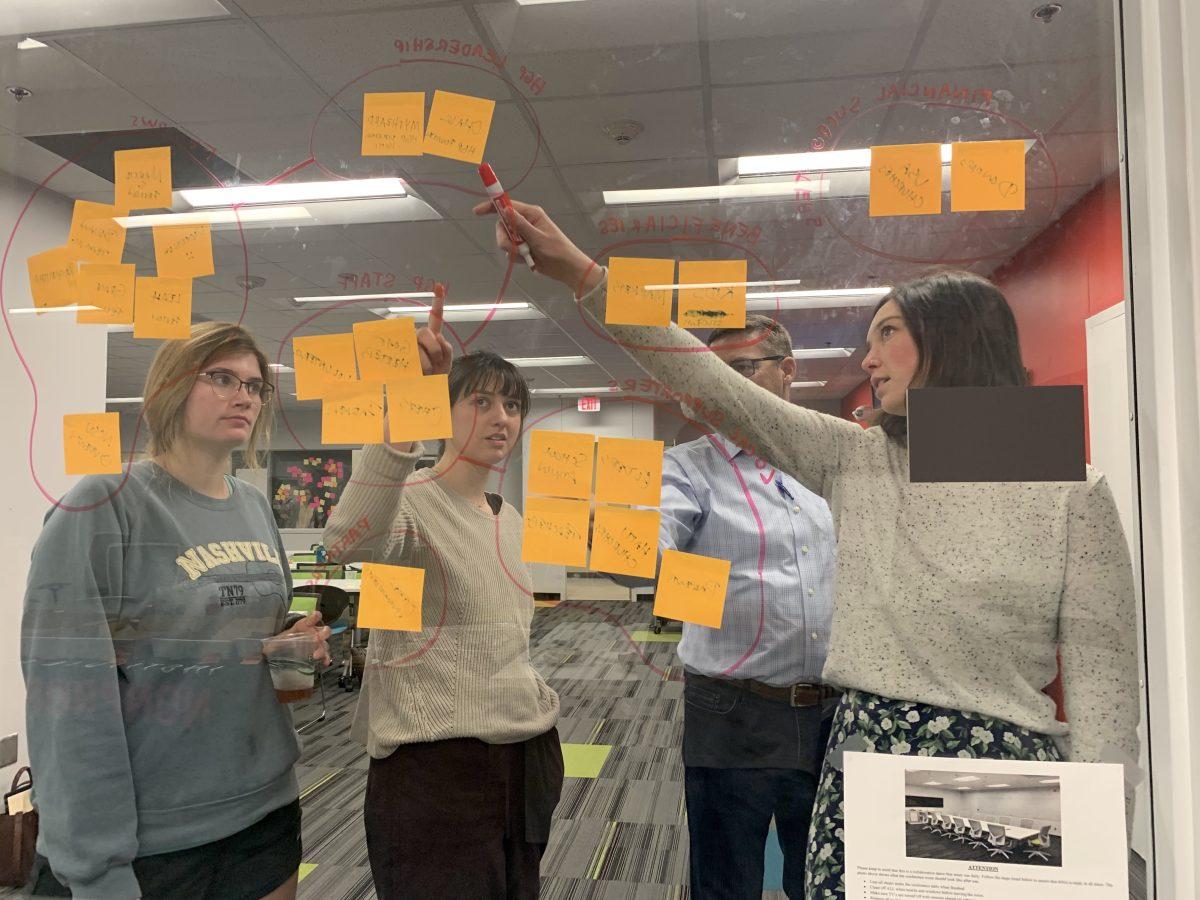NC State supports a multitude of entrepreneurship-associated programs and events, from prominent startup competitions like the eGames, to initiatives like the Miller Fellowship and the Andrews Launch Accelerator. One such program is the Social Innovation Fellows, with a goal of fostering social entrepreneurship for both undergraduate and graduate students.
Launched four years ago, the program offers students a deep dive into learning the skills, concepts and tools to be leaders of change. Unique from other entrepreneurship-based programs on campus, the Social Innovation Fellows program helps students develop their own sense of purpose and agency and become adept in both technical and adaptive skills.
Students participating in the Social Innovation Fellows program can anticipate a year-long competitive-based offering working alongside a diverse team on a real-world problem.
According to Elizabeth Benefield, director of the NC State Social Entrepreneurship Initiative, students are placed on teams and matched with a social or nonprofit community enterprise.
Students have a chance to work on a variety of issues closely aligned with the United Nations Sustainable Development Goals, ranging from energy to food insecurity to educational issues. At the end of the program, students are expected to have accomplished several goals.
“What we really focus on is the experience of the student,” Benefield said. “We want to know how they have grown and changed in their understanding of their own sense of agency as a problem solver in the world. We want to hear how they stumbled and recovered and how their team pivoted because of changing circumstances. We want to hear how they practiced resilience and adapted to a changing environment.”
Students present their final project at the end of the school year, including progress made on both the project and problem that they’re trying to solve.
Above all, Benefield wants students to understand that problem solving is not linear.
“It’s not always recognized as such, but impact work is really messy,” Benefield said. “You have to take a lot of turns and their experience adapting to that, learning those skills and working with others on a team is what we really care about. Students really want to move the needle on a project or on a problem, and we really want them to have a meaningful personal journey, understanding more about their own sense of contribution and their own skills as change leaders. It’s about making progress on the problem, but also that ‘aha’ moment for our students, like personal growth basically.”
Of course, skills learned through the Social Innovation Fellows program are also applicable in the workplace.
“More and more, we know that employers are looking for students who have had the experience of working on diverse teams who have demonstrated an understanding of cultural competency and empathy work who are creative problem solvers,” Benefield said. “We feel like the skills that we practice are applicable for any student going into any discipline or industry.”
The program has grown immensely over the past four years; its presence on campus helped the university recognize the importance of impact entrepreneurship. The program is committed to a diverse cohort of students, recruiting from all 11 colleges on campus, from first-year to Ph.D.
Benefield says she hopes that the program will expand in capacity, with further support from the university. With the program having to turn hundreds of students away, expanding the program’s offerings would help students learn innovation skills and engage with impact work through resources necessary for expansion from the university.
“My dream is that every student will understand the impact of their venture or their work as an entrepreneur,” Benefield said. “In other words, instead of a subset, I would love to see social impact as a lens from which a student practices entrepreneurship.”
Follow the Social Innovation Fellows’ Instagram or Facebook, or subscribe to their newsletter.














